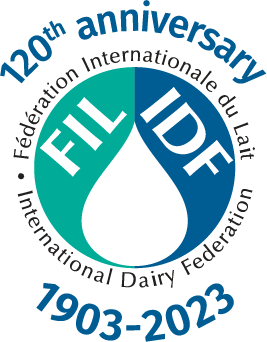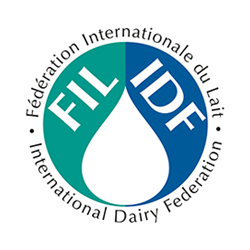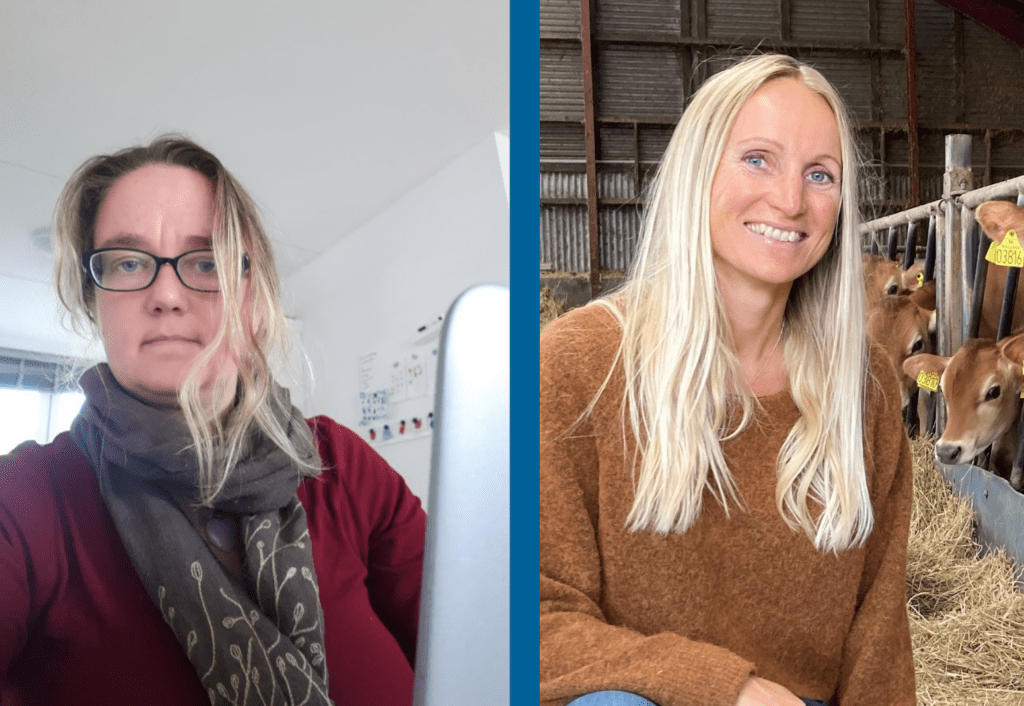- What is the relevance of COP27?
For us, COP27 is an opportunity to showcase the global dairy sector’s commitment to the UN Sustainable Development Goals and specifically to Climate Action, and all the progress that has been made in that respect since the signing of the Dairy Declaration of Rotterdam in 2016 and the launch of the Pathways to Dairy Net Zero initiative in 2021.
It is also an opportunity for us to present the standards and guidelines that IDF has developed to assess and reduce Carbon Footprint, GHG and Methane emissions, environmental impact on soil, water and air, and engage in energy saving practices. These tools have been published on IDF’s bulletins. Two of the latest were the Bulletin on the revised IDF global Carbon Footprint standard for the dairy sector and Bulletin N°519/2022: C-Sequ LCA guidelines for calculating carbon sequestration in cattle production systems.
Moreover, COP27 is a chance to communicate the many efforts that Dairy is doing at a global level to engage in sustainable and climate action practices to address the SDGs in every region of the world. Many of these interesting cases are included within the 6 editions of IDF Dairy Sustainability Outlook that can be found at IDF’s corporate website: www.fil-idf.org.
- What is the role of IDF in it?
Precisely, the role of IDF in COP27 is to represent the global dairy sector on this Conference of Parties before governments and Intergovernmental Organizations (IGOs). We will inform them of the above-mentioned commitments and efforts and we will also remind the governments and IGO’s that Dairy is part of the solution for climate action and, therefore, the relevance of supporting the dairy sector with the right policies. For this purpose, we will be hosting one side event on November 11 from 11:30 to 13:00 local time on the global dairy sector’s climate ambition and progress towards achievement of the Paris Agreement. Also, I will speak that same day from 16:30 to 17:30 on the “Progress towards Pathways to Dairy Net Zero” at the FAO Pavilion. Moreover, IDF experts will also participate in other events as well. All side events can be followed online on the UNFCCC official channel on Youtube.
Also, our role as IDF within COP27 is to provide guidance and tools to our membership to enhance the local dairy sectors and organisations on the conference, as well as their dialogues with their respective governments on the type of engagement and support that they need to become part of the solution. For this purpose, at IDF we elaborated an Advocacy kit that is available for all our members on the IDF Intranet. There they will find a sample letter to address their local governments explaining them why Dairy is not a threat but part of the solution to climate change, key massages to showcase the work that the global dairy sector is doing to generate climate action, blogs and publications on Climate Action and sustainable practices worldwide.
- What are the main activities that the global dairy sector is taking to accelerate climate action?
Most of the activities that the global dairy sector is taking to accelerate climate action include the use of the best practices promoted by IDF as the LCA Global Standard for Carbon Footprint assessment, the Carbon sequestration guidelines for livestock, the guidelines for reducing negative environmental impact on water, soil and use and, at the same time, to maximize positive impact like ecosystem services. The good news is that when all these best practices and tools are put into practice and when the ecosystem services are taken into account, dairy becomes part of the solution for climate change.
- What is the balance of the Dairy Declaration of Rotterdam, 6 years after its signature?
The balance is positive since many countries have signed this declaration, committing themselves to pursue the UN Sustainable Development Goals for 2030. These goals include of course Climate Action and Environmental Impact but also exceed them, since they also include other objectives where the global sector has a lot to feel proud of as well, like fighting hunger at a global level or achieving a better gender balance. Milk and Dairy are the main source of animal protein, vitamins and basic nutrition at all ages but particularly during childhood in many developing regions, nourishing over 6 billion people worldwide. It also provides livelihoods to over a billion people. Many of the dairy farms around the world are run by women. This led us to create a new Task Force on Women in Dairy, to analyse and promote the role of women in global dairying. We are also actively engaged in women in science, to promote the role of women and girls in scientific activities, in particular in those related to dairy science. In this respect, we were proud to announce that the first and second winners of our recently created IDF Pavel Jelen Early Career Scientist Prize were women.
- What’s the relevance of Pathways to Dairy Net Zero initiative?
The importance of the Pathways to Dairy Net Zero that we launched last year at the UN Food Systems Summit is to promote the objective of achieving a net zero balance between GHG emissions and sequestration by engaging in best practices, which as explained are mainly based in the standards, tools and guidelines that IDF develops and provides to the global dairy sector. It is a way of ensuring that Dairy is part of the solution for Climate Change. It is also a platform for sharing knowledge and innovations around the world, particularly between emerging and developed countries, and also to show that in many developing regions, sustainable and climate action practices are already taking place and that ecosystem services are high due to the use of grassland for grazing activities as well as the growing of pastures that generate carbon sequestration.
- What other actions and commitments can the dairy global sector undertake to accelerate climate action?
Global conferences like COP27 or last year’s Food Systems Summit as well as our own IDF World Dairy Summit are ways of accelerating climate action through knowledge and innovation sharing. The global dairy sector can accelerate climate action by an actively participating in these summits, by bringing and presenting success stories, by engaging and doing advocacy with their governments, asking for support and implementation of the right policies. As IDF we do our part, not only by being actively present in COP27 and other UN and international forums, but by organising sustainability and climate action panels at the IDF World Dairy Summit, by doing scientific research, developing and publishing standards, guidelines and best practices on Sustainability and Climate Action, by showcasing impactful cases on our Dairy Sustainability Outlook, by generating global commitments and initiatives like the Dairy Declaration of Rotterdam and Pathways to Dairy Net Zero, by launching global communication campaigns and promoting the UN world days. So, a good way of promoting Sustainability and Climate Action within the global dairy sector is to be part of IDF, to participate in its multiple working bodies and to support and engage in its activities and campaigns.
I would like to invite the global dairy community to continue to work and engage with us.











